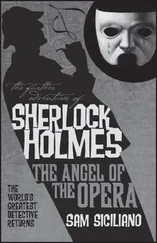Ahern, Jerry - The Web
Здесь есть возможность читать онлайн «Ahern, Jerry - The Web» весь текст электронной книги совершенно бесплатно (целиком полную версию без сокращений). В некоторых случаях можно слушать аудио, скачать через торрент в формате fb2 и присутствует краткое содержание. Жанр: Старинная литература, на английском языке. Описание произведения, (предисловие) а так же отзывы посетителей доступны на портале библиотеки ЛибКат.
- Название:The Web
- Автор:
- Жанр:
- Год:неизвестен
- ISBN:нет данных
- Рейтинг книги:4 / 5. Голосов: 1
-
Избранное:Добавить в избранное
- Отзывы:
-
Ваша оценка:
- 80
- 1
- 2
- 3
- 4
- 5
The Web: краткое содержание, описание и аннотация
Предлагаем к чтению аннотацию, описание, краткое содержание или предисловие (зависит от того, что написал сам автор книги «The Web»). Если вы не нашли необходимую информацию о книге — напишите в комментариях, мы постараемся отыскать её.
The Web — читать онлайн бесплатно полную книгу (весь текст) целиком
Ниже представлен текст книги, разбитый по страницам. Система сохранения места последней прочитанной страницы, позволяет с удобством читать онлайн бесплатно книгу «The Web», без необходимости каждый раз заново искать на чём Вы остановились. Поставьте закладку, и сможете в любой момент перейти на страницу, на которой закончили чтение.
Интервал:
Закладка:
Her face flushed, then she added, "In the guest room, I meant."
Rourke nodded. There was no strategic reserve site for more than a hundred miles, and Rourke knew that he needed gasoline. The slow going in the storm had depleted his tanks. "That gas station really has gas?" he asked her.
"You can even use my credit card, John, if you don't have any money."
Rourke looked at her, speechless. "Credit card?" The gasoline—without it he couldn't press the search for Sarah and the children. "All right, Martha, I'll accept your generous invitation. Thank you." His skin crawled when he said it.
Tildie's breath came in clouds of heavy steam. On a rise overlooking Lake Hartwell, Sarah reined the sweating animal in. Beneath her horse's hoofs was South Carolina and on the far shore, Georgia. In the distance, to her left, she could make out the giant outline of the dam through the swirling snow. And below her, on the lake, was a large flat-bottomed houseboat.
Smoke drifted from a small chimney in the center of the houseboat's roof.
She looked behind her at Michael and Annie, freezing with the cold; at Sam, John's horse before the war and now she supposed more realistically Michael's horse. The animal was shuddering as large clouds of steam, like those Tildie exhaled, gushed from its nostrils. "Michael, where'd you get that knife?" "One of the children on the island—he gave it to me." Sarah didn't know what to say. Her son had just stabbed at a man trying to hurt him, trying to hurt his sister. "You did the right thing, using it—but be careful with it." She couldn't quite bring herself to tell him that she wanted to take it away from him. tfJust be careful with it. We'll talk about it later."
"All right," he said—slightly defensively, she thought.
beneath it slick and wet and like polished ice.
When she reached the base of the rise, the houseboat was less than thirty feet away.
There were no mooring lines, but there were trees nearby that woulddo, she calculated. The houseboat rose and fell with the meager tide, edgingin toward the shore and away. Sarah visually searched the hank. At one place the houseboat's gunwales were three feet away from the edge when the Hat-bottomed craft drifted in. Sarah skidded down, along the red clay toward this spot, secured her rifle, then waited, wiping imaginary sweat from her palms as she rubbed her gloved hands along her thighs.
The houseboat was easing in. Sarah jumped, her hand reaching out for the line of rope that formed the rail, grabbing at it. The rope, ice-coated, slipped from her fingers.
She twisted her body, arching her back, throwing her weight forward, crashing her arms down across the rope, falling, heaving over the raiJ and sprawling across the ice-coated deck.
She lay there a moment, catching her breath, her belly aching where the butt of the Government Model Colt had slammed against it as she fell. She rolled onto her side, giving a brave wave toward the children, still watching her from atop the rise. But she didn't call out because of the smoke in the houseboat chimney—there had to be people aboard.
Sarah tried standing up, but the deck was too slippery for her and she fell, catching herself on her hands, the butt of the AR-slamming into the deckboards. She crawled on hands and knees toward the door leading inside.
Sarah looked at the houseboat again. "I'm going to see. if there's anyone aboard that houseboat—if maybe wecan find shelter with them. Michael, you and Annie stay here. Don't come after me. If it looks like I'm in trouble . . . then . . ." She didn't know what to tell him. Finally she said, "Use your ownjWgment. But wait until I come for you or you see Vm in trouble.
Understood?" rtYe$, I understand," he told her. She knew he understood; whether he would do as she asked was another question. "And watch out behind you—for those people." She didn't know what else to call the wild men and women who had attacked them.
She stepped down from Tildie, her rear end suddenly cold from leaving the built-up warmth of the saddle. She handed Michael Tildie's reins. "Hold her. I'm going down there to look."
Sarah settled the AR-across her back, on its sling, then thought better of it. She took the rifle off and held it in her right hand, a fresh thirty-round magazine in place, the chamber loaded already. Her pistol, John's pistol, was freshly reloaded and back against her abdomen under her clothes. It was starting to rust a great deal; she didn't know what to do to stop it except to oil the gun.
With her gloved left hand she tugged at the blue-and-white bandanna on her hair, pulling it down where it had slipped up from covering her left ear.
She smiled at the children. "I love you both. Michael. Take care of Annie." She started down from the rise, toward the houseboat. It appeared as though there were no moorings, that something like a tide was forcing the boat toward shore.
She hurried as best she could, slipping several times where the iced-over gravel was still loose, the red clay
She stopped beside the closed door and reaching around behind her, got the AR-and worked the selector to full auto. Reaching up to it, she tried the door handle. It opened under her hand, swinging outside to her left.
Not entering, she looked inside. A man and a woman lay on the bed at the far corner of the large room, the sheets around them stained; the smell assailed her nose. They were locked in each other's arms, their bodies blue-veined and dead.
"They killed themselves," she murmured, resting her head against the doorjamb.
Sarah Rourke wept for them—and for herself.
Settling his glasses back on the bridge of his nose, Paul Rubenstein pulled down the bandanna covering his face as he slowed the Harley, the snow under it slushy and wet. He looked up, and for a brief instant could see a patch of blue beyond the fast scudding gray clouds.
"It is breaking up," Natalia said from behind him.
'"Bout time." He smiled. He suddenly had the realization of the air temperature on his face. rtMust be twenty degrees warmer than it was when we broke camp," he told her, looking over his right shoulder at her.
"We should be getting into my territory soon, Paul— there may not be time," she began.
"I know; give John your love, right?"
He felt the Russian woman punch him in the back. "Yes." He heard her laugh. "And this is for you." And he felt her hands roughly twisting his head around, her face bumped his glasses as she kissed him full on the lips. "I won't ask you to give that to John—that was for you." She smiled.
"Look, you don't have to—"
"To go back to my people? John and I went over that. I have to. I'm a Russian—no matter how good my English
is, no matter how much I can sound or look like an American. I'm a Russian. What I feel for John, what I feel for you as my friend—that will never change. But being what I am won't change either."
"You know you're fighting on the wrong side," Rubenstein told her, suddenly feeling himself not smiling.
"If I said the same thing to you, would you believe me? I don't mean believe that I believed it, but believe it inside yourself?"
"No," Rubenstein said flatly.
'Then the same answer ior you, Paul. No. My people have done a great deal of harm, but so have yours. With good men like my uncle, perhaps I can do something—* to-"
"Make the world safe for Communism?" He laughed.
She laughed, too, saying through her laughter, "You're not the same barefoot boy from the Big Apple that I met long ago, Paul."
He was deadly serious when he said to her, "And you're not the same person you pretended to be then. I'll tell you what your problem is. You grew up believing in one set of ideals and you've been realizing what you believed in all that time was wrong. Karamatsov was the Communist, the embodiment of—"
Читать дальшеИнтервал:
Закладка:
Похожие книги на «The Web»
Представляем Вашему вниманию похожие книги на «The Web» списком для выбора. Мы отобрали схожую по названию и смыслу литературу в надежде предоставить читателям больше вариантов отыскать новые, интересные, ещё непрочитанные произведения.
Обсуждение, отзывы о книге «The Web» и просто собственные мнения читателей. Оставьте ваши комментарии, напишите, что Вы думаете о произведении, его смысле или главных героях. Укажите что конкретно понравилось, а что нет, и почему Вы так считаете.







